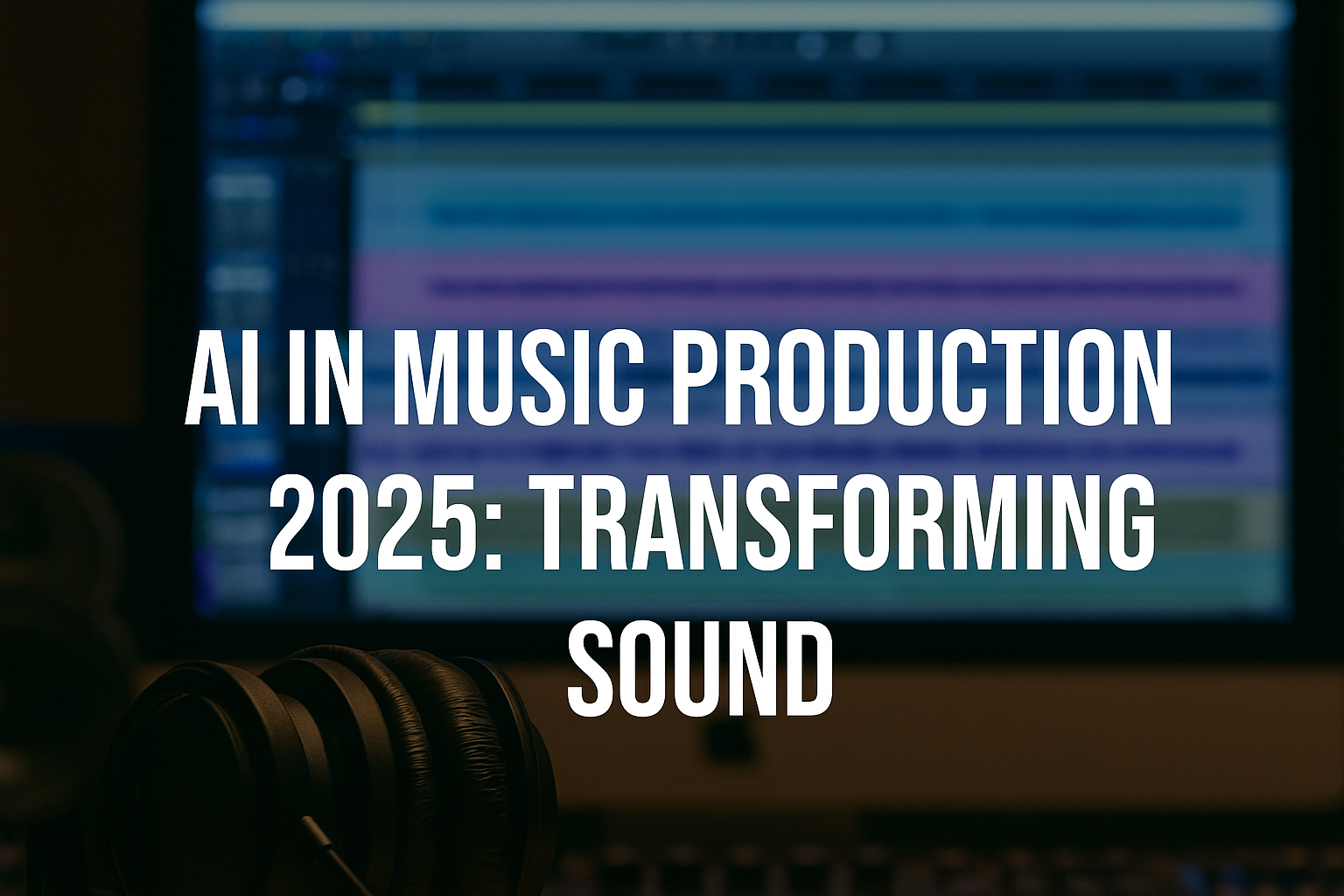AI in Music Production is transforming how artists create, mix, and master music in 2025. With artificial intelligence built into digital audio workstations, musicians can compose complex tracks, automate mastering, and explore new creative directions faster than ever. AI in Music Production is not just a tool; it is a collaborator that helps artists shape the sound of the future with speed and precision.
What Is AI in Music Production?
AI in Music Production refers to the integration of machine learning and neural networks into the process of making music. These systems analyze large libraries of songs, patterns, and frequencies to help musicians generate beats, suggest chord progressions, and emulate instrument tones. Unlike fixed plugins, systems used for AI in Music Production learn over time and adapt to the style of the artist.
How AI Is Revolutionizing Music Creation
Producing a high‑quality track once required expensive equipment and expert knowledge. Today, AI in Music Production enables independent artists to achieve studio‑grade results at home. Intelligent assistants balance levels, apply effects, and recommend structural edits while machine learning models detect pitch issues, align vocals, and refine harmonies. The result is faster production without losing creative control.
Real‑World Applications of AI in Music Production
- Composition: tools generate melodies and drum patterns inspired by specific genres.
- Sound design: neural synthesis creates unique timbres and evolving textures.
- Mixing and mastering: assistants adjust EQ, compression, and loudness targets automatically.
- Collaboration: artists guide systems with mood or lyric prompts to co‑create ideas.
- Trend prediction: data models estimate what styles are likely to resonate with audiences.
Benefits of Using AI in Music Production
- Speed: automated workflows reduce editing and mastering time.
- Precision: analysis catches frequency clashes and timing errors instantly.
- Creativity: suggested harmonies, rhythms, and textures encourage experimentation.
- Accessibility: artists without engineering backgrounds can reach professional quality.
- Cost efficiency: fewer studio hours and fewer revisions reduce overall spend.
Challenges and Ethical Concerns
Despite the promise of AI in Music Production, questions remain about originality and ownership. If a system contributes a melody, clarity is needed on rights and royalties. There is also the question of dataset quality; training on poorly labeled or biased material can lead to uninspiring results. Musicians who embrace AI in Music Production should treat it as an assistant, keep session notes about where algorithms contributed ideas, and preserve the human voice that defines their art.
The Future of AI in Music Production
The future of AI in Music Production will be even more conversational and context‑aware. Artists will describe a mood or reference a scene, and the system will propose changes to tempo, harmony, and instrumentation in real time. Emotion‑aware models will make music adaptive for games, film, and live shows. By the end of the decade, personalized assistants will understand an artist’s catalog, audience response, and sonic identity, making collaboration smoother while leaving final decisions to the creator.
Conclusion
AI in Music Production 2025 marks a shift from manual engineering to intelligent creation. By combining data‑driven insight with human taste, musicians can move from idea to release more quickly and with greater confidence. Used thoughtfully, AI in Music Production amplifies imagination, raises quality, and keeps the artist at the center of the process.
